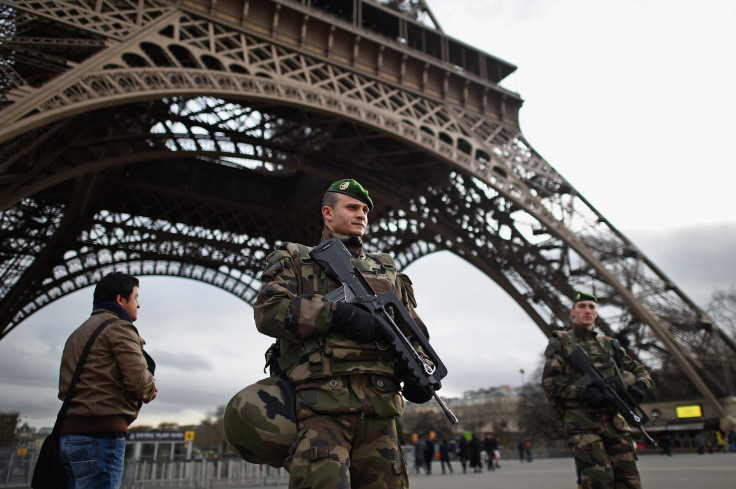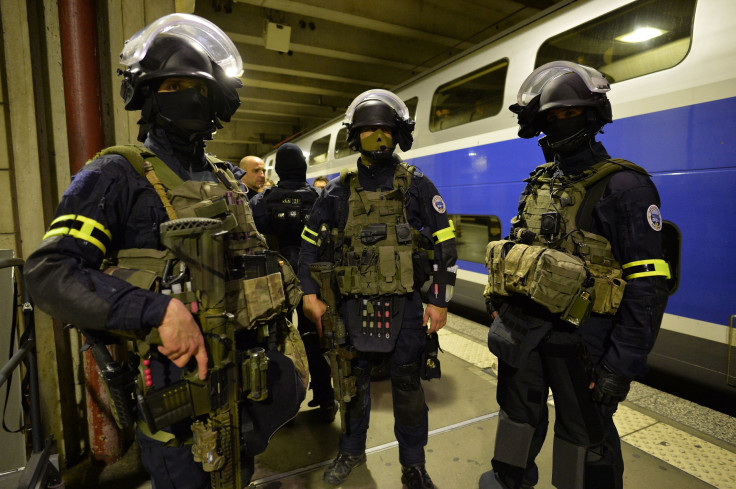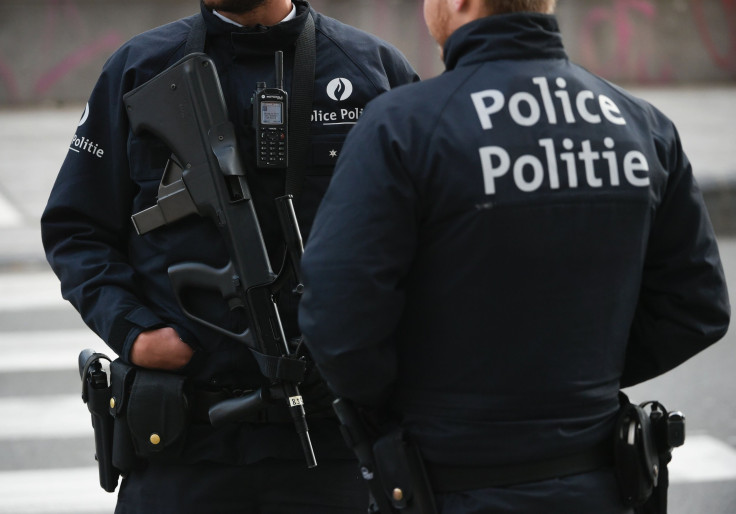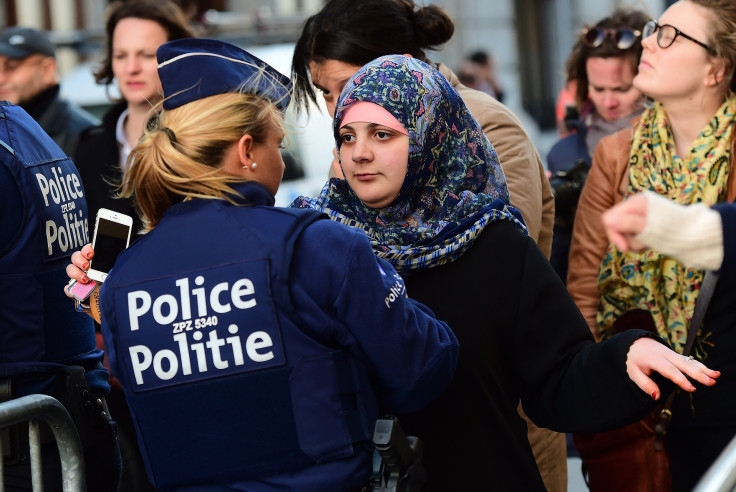ISIS: Europe’s Counterterrorism Approach Struggles As Islamic State Militants Continue To Cross Borders

PARIS — What once was a place for mourners is now a point of protest: The Place de la République today is a different square than the one it was after the terror attacks that claimed the lives of 130 people here last November. Six months on, crowds of angry students dodge police tear gas canisters, demanding the abolition of proposed austerity laws, while bouquets of flowers laid at the feet of Marianne, the bronze personification of French Republican virtues — liberté, égalité, fraternité — remain untouched.
Wreaths of freshly laid roses adorn Paris’ many memorials, but an atmosphere of uncertainty permeates the city, which has been in a state of emergency since the Nov. 13 coordinated assaults on a music hall, restaurants and outside a sports venue. At both city airports, police officers, armed with AK-47s, check bags at the front door. At the main tourist attractions — the Eiffel Tower and Notre Dame Cathedral — imposing signs warn visitors to stay vigilant.
Meanwhile, officials in France are grappling with a particularly complex problem: how to prevent another deadly attack in the face of a declining economy and an influx of refugees from war-ravaged Syria and other conflict hot spots. They aren’t the only ones.

Officials in countries throughout Europe are worried about an impending attack as fighters with the Islamic State group in Iraq and Syria, also known as ISIS, continue to enter the European Union through porous borders with Turkey. The Turkish government has cracked down on militants traveling through major border crossings, but many have utilized the network of illegal smuggling routes to cross into Europe. Three bombs have detonated in Turkey this year alone, and in 2015, more than 150 people were killed in terrorist attacks in Western Europe.
Although the threat by ISIS is regional, the EU has yet to implement an integrated, coordinated regional-response plan. Less-affluent countries don’t have the resources to identify, track and follow militants over a long period of time, analysts say. Countries such as France and the U.K. are devoting millions of dollars to build up their counterterrorism infrastructure, but smaller, poorer countries are still struggling to identify suspected militants.
Belgium, for example, does not have the capacity or intelligence training to implement any meaningful system that would have an impact domestically, let alone participate in a Europe-wide information-sharing system, Haras Rafiq, an expert from the Quilliam Foundation, a counter-extremism think tank in London, told International Business Times.
“These countries just aren’t mature enough and don’t have the resources,” he said. “Europe can’t even think about creating a task force before the local infrastructure improves.”
Although individual European countries have begun to conduct their own internal investigations of suspected terrorists, little of that information has been shared within the region. So, when militants cross borders from Syria into Turkey, and then move on to Europe, they disappear from the radar.
“Unless it’s an emergency, I doubt that European countries are doing a lot of intelligence sharing, especially at a time when the union seems to be breaking up,” said Clint Watts, an expert on terrorism and ISIS.
Interpol and Europol, international policing systems, offer services to countries battling terrorism by helping to coordinate intelligence sharing. They circulate alerts on terrorists, narcotics and weapons transportation, and threats of attacks to member countries.

But counterterrorism experts aren't convinced that this is enough.
Europol and Interpol do not receive or transmit classified information that individual secret intelligence services gather, a glaring omission that the Belgian government has suggested filling with the creation of a European intelligence agency.
"We must quickly put in place a European intelligence agency, a European CIA,” Belgian Prime Minister Charles Michel told French radio RTL.
Other European leaders quickly shut down Michel's idea. "We shouldn't waste our energy on [such an endeavor]," German Interior Minister Thomas de Maiziere told the AFP news agency, adding that the EU should "concentrate on improving the exchange of information through existing institutions.”
It's not only EU leaders who are concerned about the continent's piecemeal approach to tackling terror: FBI director James Comey made it clear, in a briefing with reporters last week, that U.S. law enforcement officials see Europe’s lack of coordination on counterterrorism as a potential threat to the United States.
“Europe is hours from here via an air flight, so we think of it as part of the same threat environment,” Comey said.
The problem for Europe is finding an affordable alternative to America's federal system.
Before last year’s attacks, France tracked suspected militants only after they were arrested, Rafiq said. That method didn’t work. One of the men involved in the recent French terrorist attacks was known to intelligence services but fell off the radar because of a lack of resources.
“France used to not have a deradicalization program, so this guy wasn’t being followed,” Rafiq said. “Had [France] had the program, this particular man may not have carried out the attack on [the staff of French satirical magazine] Charlie Hebdo” in January 2015.
Last week, France announced a new $48 million initiative to combat terrorism in the country. It will create deradicalization centers to help prevent individuals from joining extremist movements — a path that several other countries in the world have also tried.
Some analysts, Watts among them, are skeptical of the plan.
“These centers have been attempted in Indonesia, Saudi Arabia and Yemen, and the recidivism rate has been incredibly high. Those in the centers in the Gulf ended up in al Qaeda when they left,” he said. “You are basically putting these guys with the same ideas together and providing a space for them.”
Since its inception in 2004, about 4,000 Saudi prisoners have participated in a six-week rehabilitation course, counseling sessions, and an after-care program that helps reintegrate them into Saudi society. But as many as 10 to 20 percent of those released may return to illicit activity. Yemen’s de-radicalization recidivism rates are similar.
Rafiq says deradicalization measures in the U.K. have been more effective.
“Since 7/7 [the 2005 London underground and bus bombings] there has been only one attack where someone has been killed,” Rafiq said.
Established two years after the attack, the first program was initiated in London before expanding across the rest of the country. Unlike centers in Saudi and Yemen, which deal with those who have already offended, the U.K.’s program was set up to identify and provide support to individuals who are at risk of being drawn into terrorism. Local authorities are tasked with overseeing the program, titled “Channel.” If an individual is referred to the program, the case will be passed on to a group of professionals from different social organizations to assess that person’s vulnerability and likelihood of committing a terror offense.
In a recent report, Watts disclosed that last year, at any given time, British security forces were working to disband at least 20 active terror cells, the majority of whom have been radicalized and trained in the Saudi kingdom.
As each country tries to identify ways to curb terrorism in their region, officials across Europe are frustrated by a lack of cooperation, blaming each other for lax policies.
"I think there was a lack of will on the part of some [Belgian] authorities ... perhaps also a kind of naivete," said French Finance Minister Michel Sapin just hours after the attacks in Brussels in March.

The uneven resource allocation and range of capacity now result in a massive deficit between terrorists and counterterrorist experts, said Watts in a recent study published by the Council on Foreign Relations.
“Until this gap between terrorists and counterterrorists is closed, the Islamic State and those terrorist offshoots emerging in its wake will find Europe an enticing playground,” he said.
After Brussels, French Youth and Sports Minister Patrick Kanner said that some 100 neighborhoods in France shared the traits of Brussels’ Molenbeek, the breeding ground for terrorism in the Belgian capital. The French government is planning to use the deradicalization centers to attack potential terrorists' belief in jihad, Watts said, but that tactic will not work.
“Everyone wants to go in with this ideological lens to solve things, but most of these guys are not ideological. Most of the issues Europe needs to address are social and generational,” Watts said. “The way to deal with those is to dilute what it means to be a foreign fighter for the Islamic State.”
© Copyright IBTimes 2024. All rights reserved.











